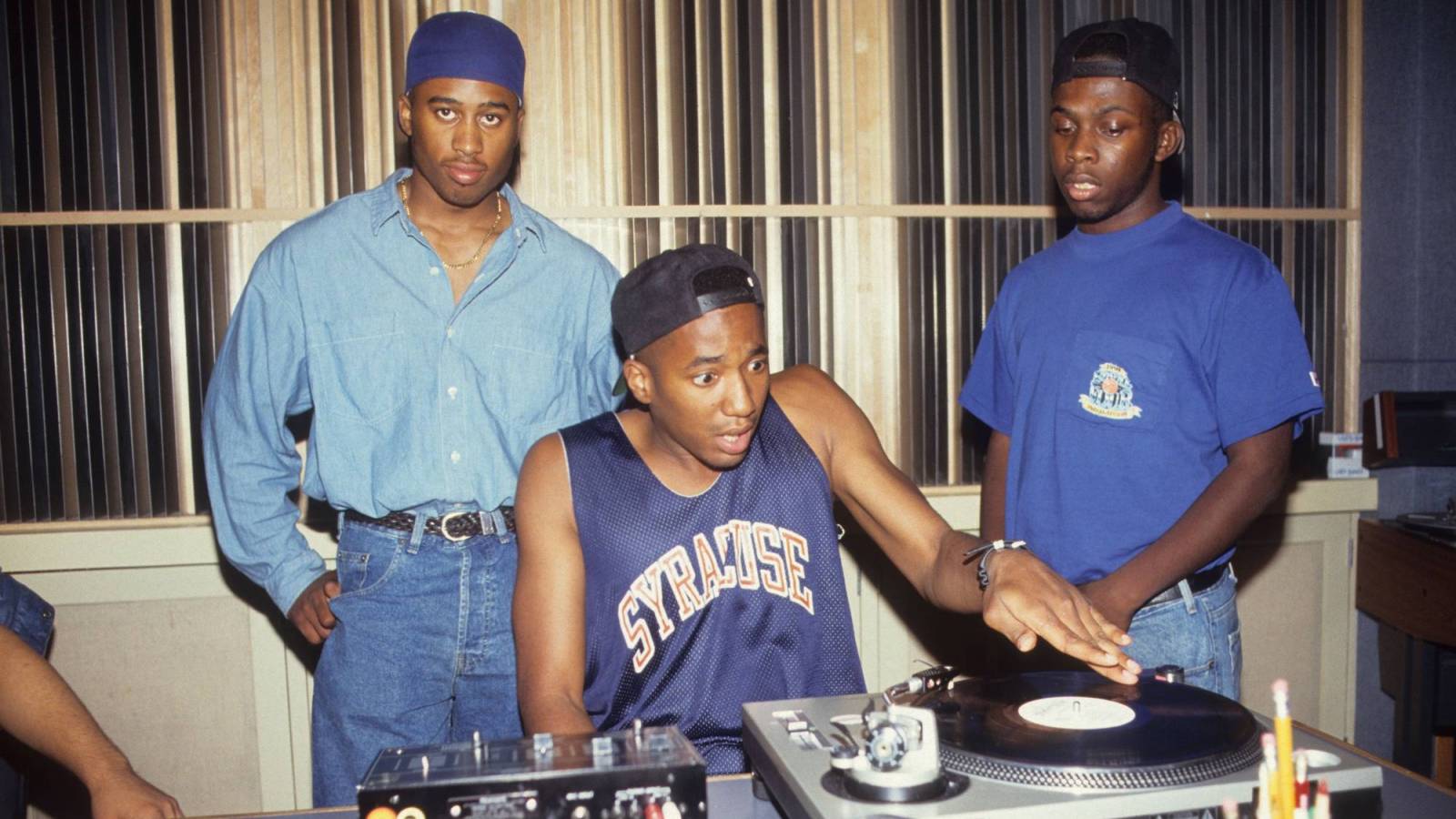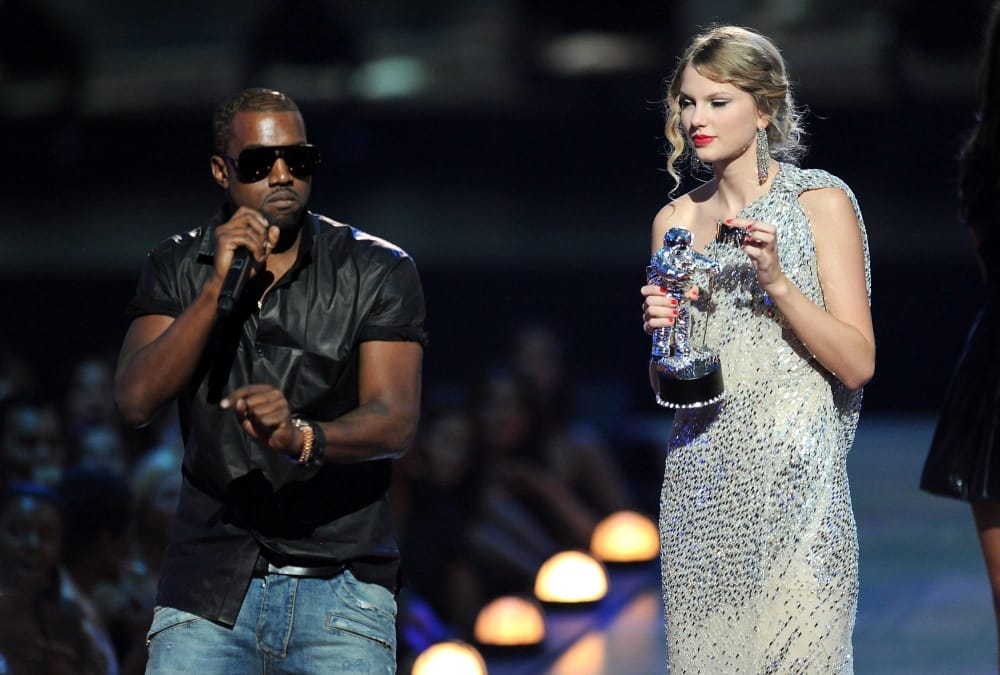
ATCQ: 'The Low End Theory' that bridged hip-hop and jazz
The first time I really sat down and listened to A Tribe Called Quest, I was a sophomore in high school. I gave a risible list of albums that I wanted to Ryan Welch, who came back to Tulare Union High School three days later with a stack of burned CDs labeled with nothing but a black Sharpie pen. The tower of illegal data was my first foray into a lot of the albums you’re supposed to listen to as a fan of the genre, as a member of the culture. Among those was Tribe’s The Low End Theory, an album that felt all too familiar growing up in a family that loved jazz.
Theory begins with “Excursions,” which features a slowed-down sample of the upright bass line from Art Blakey’s “A Chant for Bu” — a tone-setting bass line that leaves no question about where Tribe drew inspiration from. The Low End Theory isn’t a fusion of hip-hop and jazz, but it’s a rap album that couldn’t exist without the swing recorded decades before Theory dropped in 1991. Since the release of the critically acclaimed album, Q-Tip and producer Ali Shaheed Muhammad have spoken out about how much jazz influenced their work, so much so that on “Excursions,” Tip raps, “You could find The Abstract listening to hip-hop, my pops used to say that it reminded him of bebop.”
It’s Tip’s next line that is most fascinating about what The Low End Theory means from a cultural standpoint. The Abstract asks, “Well daddy, don’t you know that things go in cycles,” and The Low End Theory began a cycle that ultimately came to fruition 24 years after the album was released with another classic, jazz-influenced hip hop album: Kendrick Lamar’s To Pimp a Butterfly.
The legacy of The Low End Theory ultimately extends far beyond its influence on hip-hop. Tribe became more than just a rap group; the members became cultural benchmarks and living proof that authenticity can come in the form of minimalist, stripped-down beats, clever wordplay and bravado. Q-Tip and Phife Dawg were both measured in their personalities but were so different that the dualism of their personalities played against each other like a jam session among jazz musicians. Tip was calculated and rarely wasted words while Phife was larger than hip-hop despite the vertical challenges of his physicality with a swagger that predated an overuse of the phrase. Q-Tip was an emcee, Phife Dawg was a rapper, and the two together could find a way to entertain any and all hip-hop fans.
Tribe cultivated a subculture of fans who appreciated the group for the music as much as they were appreciated for their words, and The Low End Theory played on both sides of the fence better than anyone else from their era. In an interview with The New York Times in 1991, Q-Tip explained why he felt such a connection to jazz.
"I like making the connection because jazz was, like, intimidating music, and they pitched it underground,” said Tip. "The music industry made it underground, which is the same thing with hip-hop."
Because of Tribe’s connection to jazz, they bridged a gap for a generation of jazz musicians who, in turn, are helping to create a new generation of fans for the genre through hip-hop — the music that they grew up on. Last year, Los Angeles-born Terrace Martin was a guest on NPR’s "Microphone Check," which is co-hosted by Tribe’s producer Shaheed Muhammad, and spoke about how The Low End Theory got him into jazz.
“I’m from South Central L.A. So although my father is a jazz musician, when you’re young you’re not really into John Coltrane — it sounds crazy to you,” Martin began. "The only people who was playing music at that time in my neighborhood was my influences at the time, which was gangsters. So Tribe Called Quest came through everybody’s system because in my neighborhood, we loved Low End [Theory]. Bass lines was really important in that era."
At the time Theory was released, Shaheed Muhammad was only making beats, largely from pulling samples from the music he grew up with. Scanning the credits, you see musicians and bands like Cannonball Adderley, Grover Washington Jr. and Weather Report. Tribe had deep crates to pull from, and because of their love for music, legendary jazz bassist Ron Carter agreed to join them on “Verses from the Abstract.”
"When these guys called me about this record, I didn’t know who they were,” said Carter when asked about how he came to record with Tribe. "I knew the genre, but I didn’t know them. So I asked my son who these guys were, and he said they were the most musical guys in that zone. So I called the guy [Q-Tip] up and told him I’d do the record."
Tribe landing Carter for the album may have been fate tipping its hand. In an interview about Kendrick Lamar’s To Pimp a Butterfly, Martin told Billboard that he “fell in love with the saxophone by listening to A Tribe Called Quest, Midnight Marauders and The Low End Theory. I think that is the importance of hip-hop and jazz — they're both closely related, and once you hear jazz, you always want to look something up, like 'Let me look up who played this song,' or 'Let me look up more jazz.' I think it helps people really want to dig in and learn more about what they're listening to."
And it was Martin who helped to wrangle a lot of the musicians who made TPAB such a phenomenal album. Most of the guys on the album are a part of a new wave of jazz musicians who grew up listening to hip-hop. Martin, Thundercat and Kamasi Washington all played in Snoop Dogg’s band, the Snoopadelics. Robert Glasper was Mos Def’s music director and even did work with Q-Tip. Thundercat has worked with Childish Gambino, Mac Miller and Erykah Badu while Flying Lotus has produced work for rappers like Smoke DZA, Blu and Chance the Rapper. Almost all of these people had family who were jazz musicians but grew up in an era where their social influences fell more in line with hip-hop.
But there was always Tribe, and more importantly, there was always The Low End Theory. The album wasn’t just a drop in an endless sea of hip-hop — it’s the resulting ripple effect, influencing decades of not just hip-hop, but music and pop culture at large. Where Ron Carter was instrumental in the flesh to creating Theory, it was the same Ron Carter’s music that Thundercat brought into the studio to give inspiration to the team producing Kendrick’s album. While jazz is the driving force behind connecting the past and the present, Tribe will forever remain the catalyst to make things happen.
Phife Dawg died of diabetes earlier this year. In a documentary called “Beats, Rhymes & Life” by Michael Rapaport, Phife quipped that the disease was “like strait-up drugs. I’m just addicted to sugar.” Where Q was The Abstract, Phife was the palpable reality of the world, from his days berating every microphone he touched to the harsh reality that time isn’t indefinite for anyone, even those as immortal on wax as Phife. He was only a few months away from seeing the 25th anniversary of the album that quite literally altered the course of history.
The Low End Theory exists in a place where very few albums have the opportunity to even approach. It received five mics from The Source. The love from the critics is duplicated by the love from hip-hop fans as a collective, an accomplishment few are able to pull off with just one album, and Tribe did it with three, with Theory sitting atop the holy trinity as the best work the group produced.
Twenty-five years later, those bass lines still bounce with the tension of a fresh rubber band, the drum loops are as fresh as they’ve ever been while both Q-Tip's and Phife Dawg’s lyrics continue to be as timeless as the album’s artwork. The Low End Theory is a classic in any sense of the word, and its influence is still felt today throughout the myriad musicians who used Tribe to get them back to jazz.
More must-reads:
Trending in Entertainment
Customize Your Newsletter
 +
+
Get the latest news and rumors, customized to your favorite sports and teams. Emailed daily. Always free!


